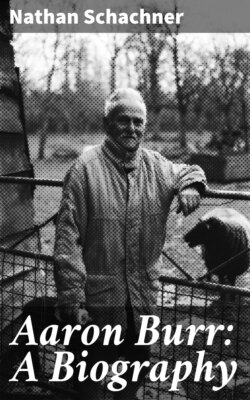Читать книгу Aaron Burr: A Biography - Nathan Schachner - Страница 55
На сайте Литреса книга снята с продажи.
2. Withdrawal and a Bargain
ОглавлениеTable of Contents
An unpublished letter from John Beckley, a Pennsylvania politician, addressed to James Madison, dispels somewhat the fog that has hitherto seemed to shroud the inner mechanism of the Republican strategy in the election of 1792 and Burr’s part therein. He tells of “a meeting which was had last evening between Melancton Smith, on the part of the republican interest of N. Y. (specially deputed) and the principal movers of the same interest here [Pennsylvania], to conclude finally & definitively as to the choice of a V. P.—the result of which was, unanimously, to exert every endeavor for Mr. Clinton, & to drop all thought of Mr. Burr.” And, he proceeds, Colonel Burr had assured him “that he would cheerfully support the measure of removing Mr. A[dams] & lend every aid in his power to C[linton]’s election.”[214]
Burr was as good as his word. Washington received a unanimous vote. Against him there was no open opposition. But John Adams met with difficulties. He received 77 out of a possible 132 ballots. George Clinton, with the Republican caucus behind him, obtained 50—the second votes of New York, Virginia, North Carolina and Georgia. Kentucky cast 10 for Jefferson, and Aaron Burr received a solitary salute from South Carolina. New York, chiefly because of Clinton and Burr, had marched with the agrarian South.
It is important to remember the outcome of that caucus in Philadelphia at which Burr was dropped in favor of Clinton. It is quite plausible to assume that certain assurances had been made to him in return for his withdrawal. At any rate, Burr was to claim after the Presidential election of 1796 that there had been such a bargain, and that the South had violated its share in the agreement.
